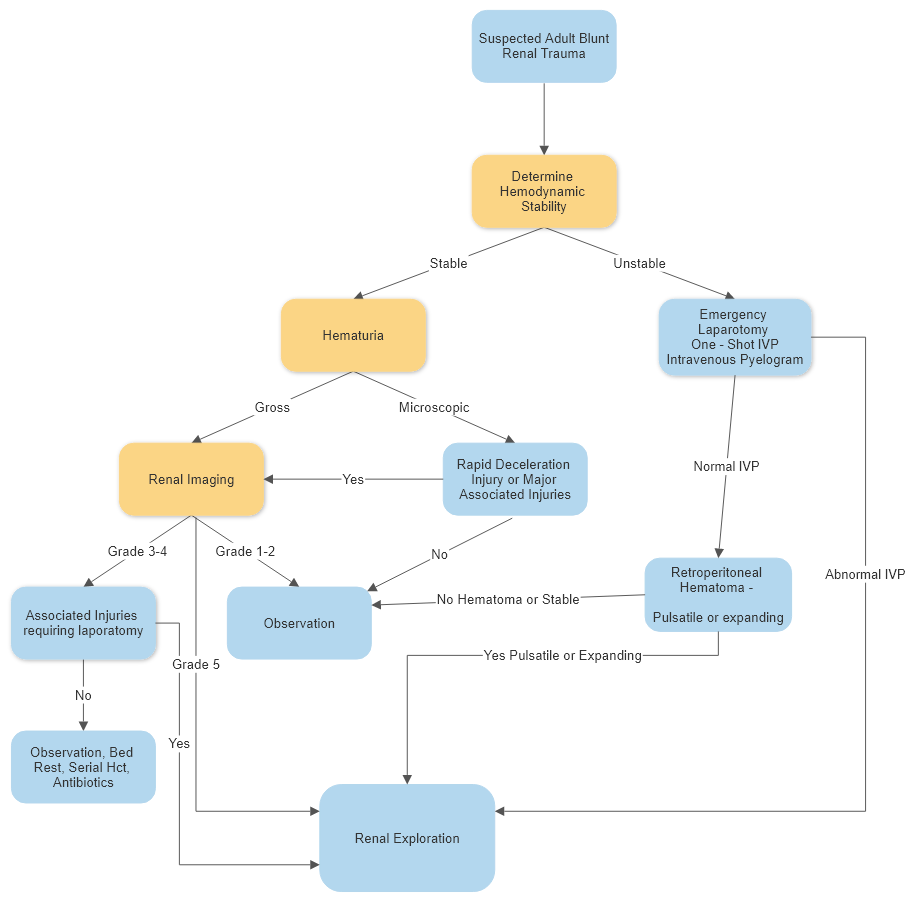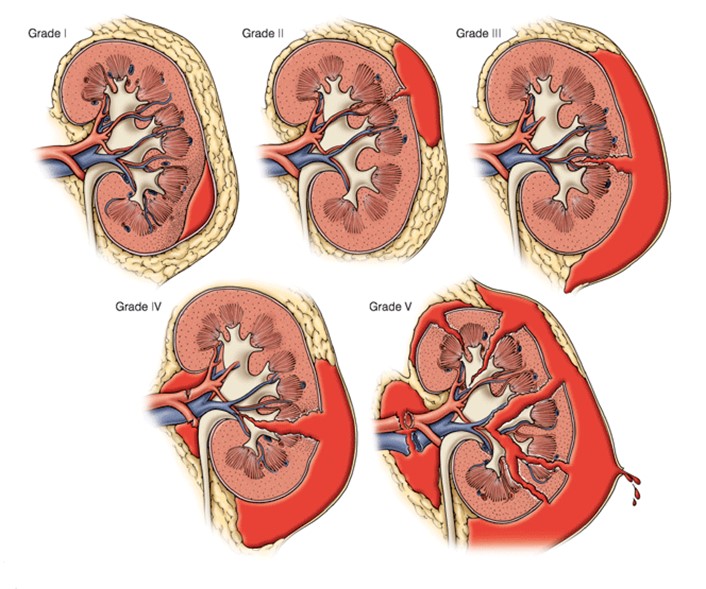Renal Trauma - Blunt
exp date isn't null, but text field is
Blunt renal injury is often the result of a rapid deceleration event (fall, high-speed motor vehicle accident) or a direct blow to the flank.
Following a blunt trauma event, the following physical exam findings should raise concern for possible renal injury:
- Hematuria
- Flank pain
- Flank ecchymoses or abrasions
- Fractured ribs
- Abdominal distension or mass
- Abdominal tenderness
Urinalysis, hematocrit, and baseline creatinine are the most important tests for evaluating renal trauma.
- Hematuria is a hallmark sign of renal injury, but does not necessarily correlate with the degree of injury. Further, its absence does not rule out renal injury.
- Since most trauma patients are evaluated within 1 hour of injury, creatinine measurement will reflect renal function prior to the injury. An increased creatinine generally reflects pre-existing renal pathology.
- Indications for radiographic evaluation with CT include gross hematuria, microscopic hematuria and shock, or the presence of major associated injuries. Any patient with a rapid deceleration injury or any of the above clinical indicators of renal injury should also undergo CT imaging, regardless of the presence of hematuria.
The AAST renal injury grading scale has been widely adopted:
|
Grade* |
Description of Injury |
|
1 |
Contusion or non-expanding subcapsular hematoma without parenchymal laceration |
|
2 |
Non-expanding peri-renal hematoma |
|
Cortical laceration <1cm deep without extravasation |
|
|
3 |
Cortical laceration >1cm without urinary extravasation |
|
4 |
Laceration: through corticomedullary junction into collecting system |
|
or |
|
|
Vascular: segmental renal artery or vein injury with contained hematoma, or partial vessel laceration, or vessel thrombosis |
|
|
5 |
Laceration: shattered kidney |
|
or |
|
|
Vascular: renal pedicle avulsion |
*Advance one grade for bilateral injuries up to grade 3.
Sources:
-Lynch TH, et al. EAU guidelines on urological trauma. Eur Urol. 2005 Jan; 47(1):1-15.
-Santucci RA, et al. Evaluation and management of renal injuries; consensus statement of the renal trauma subcommittee. BJU Int. 2004 May; 93(7):937-954.
-Santucci RA, Fisher MB. The literature increasingly supports expectant (conservative) management of renal trauma – a systemic review. J Trauma. 2005 Aug; 59(2):493-503.
Algorithm



